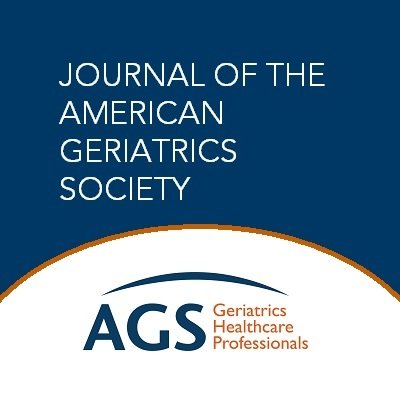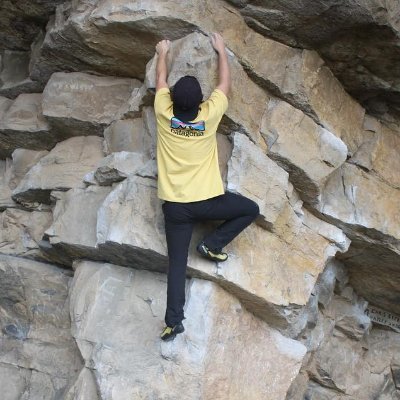
Toby Ellmers
@Toby_Ellmers
Followers
1K
Following
17K
Media
50
Statuses
2K
Sir Henry Wellcome Fellow @ Imperial College London. Interested in balance control, emotion, attention, and ageing.
London
Joined October 2015
Our new framework describing how fear of falling turns maladaptive (from protective) is finally out in @Age_and_Ageing. Final paper from my Fellowship with @willyoungexeter and @markwilson_psy (and @Elmar_Kal). Probably the one I am most proud of. https://t.co/e5RaLwnltM
9
46
111
Older individuals who had more positive self-perceptions of aging at baseline were better protected against negative physical consequences following a subsequent fall. #geriatrics
agsjournals.onlinelibrary.wiley.com
Objective To investigate how mindsets around aging at baseline affect physical recovery following a subsequent fall. Design Longitudinal observational study. Setting English Longitudinal Study o...
0
7
13
Can a brainstem reflex tell us how well you balance? Our new study shows that prepulse inhibition varies with postural load—opening the door to use PPI as a potential marker of postural control. Read the preprint 👇 https://t.co/YhmHh9JNR4
#gait #balance #neurophysiology
researchsquare.com
An unexpected loud sound typically triggers a reflex eye-blink. A reliable pre-warning attenuates reflex blinking, a phenomenon known as ‘pre-pulse inhibition’ (PPI). PPI is enhanced when standing,...
1
3
3
Dr @Toby_Ellmers from @ImperialBrains spoke to @BBCRadioScot on research which finds there is a strong association between an older person’s view of how they are #ageing and how well they will physically recover after a fall. 🎧Listen from 54mins https://t.co/KCgfgmb7tc
0
2
4
Dr Toby Ellmers (@Toby_Ellmers) who co-led the study, said: “Those who expressed more positive feelings about their own ageing seemed to be protected against worse physical consequences after a fall.
1
1
3
We are pleased to share the Article of the Month, selected by our Academic Board and the Editor-in-Chief of the EGM Journal, the official journal of #EuGMS. 📄 🔗 Read the full article here: https://t.co/gFbDe9BykY
#EGMJournal #ArticleOfTheMonth
@springer1842 @ClinMedJournals
2
7
12
Why is recovering from a loss of balance sometimes harder when we overthink it? In our new EEG study (now out in Jneuro!), we show that consciously controlling balance dampens the cortical response to a sudden loss of balance (and balance gets worse)! https://t.co/sUDwUhlOGi
jneurosci.org
“Trying too hard” can interfere with skilled movement, such as sports and music playing. Postural control can similarly suffer when conscious attention is directed toward it (“conscious movement...
1
7
22
Excited to share a paper looking at the relationship between perceived and actual balance, and how it relates to falls: https://t.co/yI8P7xGIZN Also, Andrew Hooyman made this cool interactive app based on the data! https://t.co/ArnuKQEKEI
@JK_Longhurst
@martima80
journals.sagepub.com
Background The congruence or discordance between actual and perceived balance ability has been proposed to be linked to functional outcomes such as falls. Howev...
0
6
12
Paradoxically – it seems that trying too hard to maximise “current” stability reduces the cortex’s ability to effectively respond to future losses of balance. More to follow from the best team ever... @RSM_biomechs @Toby_Ellmers
1
1
5
We did it. We killed neuro twitter and it's resuscitation it's happening somewhere else. Come join us! https://t.co/E4aEGyOlvf
thetransmitter.org
Daily neuroscience-related posts on the social-media platform this week have increased more than 400 percent, on average, compared with October.
7
37
129
Bluesky has now reached that sweet spot where the feed is much more engaging and interesting than it is here. I only visit twitter 1-2 times a week compared to Bsky multiple times a day now.
0
1
3
This led them to develop the UP-COF, the Updated Perceived Control of Falling Scale, informed by older adults and clinicians - read more in their @Age_and_Ageing paper at https://t.co/gLaJ9sRNvn
#BGSconf
0
1
3
But is concern about falling an independent risk factor for further falls, regardless of deconditioning etc? @Toby_Ellmers et al's upcoming systematic review (coming soon to @Age_and_Ageing) suggests so #BGSconf
0
4
4
🌟 🌟 🌟 JOB OPPORTUNITY 🌟 🌟 🌟 Research Assistant/Postdoctoral Research Assistant APPLY 👇 Come join a fantastic team @BartsBoneJoint @QMUL to work on a @UKRI_News rehabilitation and fragility fractures researchprogramme! Deadline 05/12/2024 https://t.co/pnU4z6M7aF
0
15
14
I’m happy to 📢that there are >=2 competitive #PhDstudent assistantships in Fall ’25. Please send me your CV, transcripts, and #research interests @PhDVoice @ThePhDPlace #PhDposition #funding
@AUG_University #AcademicTwitter #AcademicChatter #academicjobs
https://t.co/Rkp5a4ukGE
debjehu.wixsite.com
Dr. Deborah Jehu’s research aims to generate new insights into 1) refining therapeutic interventions; 2) refining falls-risk assessments; and 3) providing a better overall understanding of cognition...
0
1
3
Thank you to @KatieJSheehan & @Toby_Ellmers for a great symposium on concerns about falls - who is at risk & how we can manage it, especially as AHPs Excellent overview, also, of the OUTDOOR mobility intervention - feasibility protocol here: https://t.co/fnhQe1HqiP
#FFN2024
1
6
11
Thrilled to share a long overdue reliability paper on the balance N1! The balance N1 is stable within an individual up to one year, is reliably measured within 6 trials, and can be obtained using a clinically feasible setup with simple preprocessing https://t.co/ZDOa4Zfax2
biorxiv.org
There is a growing interest in measuring cortical activity during balance control for understanding mechanisms of impaired balance with aging and neurological dysfunction. The most well-characterized...
2
5
9
Check out my latest paper showing the balance N1 is larger in anxious kids. It's also correlated to the error-related negativity, and may offer a more reliable and controllable alternative to measuring error-related brain activity. #ERN
0
2
6
Great work by Jasmine and team! Check it out!
Thrilled to share a long overdue reliability paper on the balance N1! The balance N1 is stable within an individual up to one year, is reliably measured within 6 trials, and can be obtained using a clinically feasible setup with simple preprocessing https://t.co/ZDOa4Zfax2
0
1
4
*Dizziness is an independent predictor of future falls in older adults* Important work from @Toby_Ellmers & Team 👏🏼👏🏼👏🏼
Delighted to have published this systematic review from @Toby_Ellmers and colleagues on Dizziness in older adults and its links to higher risk of future falls https://t.co/h7cKu56jxQ
0
2
6






















